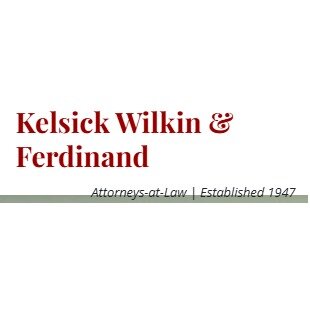Best Water Law Lawyers in St Kitts and Nevis
Share your needs with us, get contacted by law firms.
Free. Takes 2 min.
Or refine your search by selecting a city:
List of the best lawyers in St Kitts and Nevis
About Water Law in St Kitts and Nevis
Water Law in St Kitts and Nevis refers to the collection of statutes, regulations, and customary practices that govern the access, use, management, and protection of water resources within the country. With an economy and society highly dependent on water for agriculture, tourism, public supply, and environmental conservation, effective water management is crucial. Water Law encompasses everything from allocation and rights to water, licensing, pollution control, public health standards, conservation of watersheds, and infrastructural planning for water delivery and treatment. Agencies such as the Water Services Department help implement and regulate these laws to ensure fair and sustainable water use for all citizens and stakeholders.
Why You May Need a Lawyer
Legal issues related to Water Law can arise in many everyday scenarios, and specialized legal guidance is often recommended. Common situations include:
- Disputes over water rights or boundaries between neighbors or landowners
- Issues with obtaining or renewing water use permits or licenses
- Allegations of pollution or improper disposal of wastewater
- Concerns about water quality and its impact on public health or property
- Complications with government agencies regarding compliance or enforcement actions
- Participation in development projects that affect watercourses, groundwater, or coastal areas
- Negotiating or interpreting contracts concerning bulk water supply or service provisioning
- Seeking compensation for damages from flooding or water mismanagement
Local Laws Overview
Water Law in St Kitts and Nevis is shaped by several important statutes and regulations. Some of the key aspects include:
- The Watercourses and Waterworks Act regulates the supply, control, and distribution of water for public use, along with matters related to rivers, streams, and waterworks infrastructure.
- The Public Health Act prescribes standards for water quality to protect human health and prevent contamination.
- Water abstraction, borehole drilling, and construction near waterways typically require permits from the Water Services Department.
- There are rules to prevent pollution of both surface and ground water, and relevant authorities can impose penalties or require remedial action if standards are breached.
- Customary law and longstanding usage can also influence water rights, especially in rural or agricultural settings.
- Development planning laws and environmental regulations may affect water resource management, especially for major projects or land use changes.
Frequently Asked Questions
What is the main law governing water use in St Kitts and Nevis?
The Watercourses and Waterworks Act is the primary piece of legislation governing the management, allocation, and use of freshwater resources in St Kitts and Nevis.
Do I need a permit to use river water for irrigation?
Yes, you typically need to apply for a permit or license from the Water Services Department before abstracting significant amounts of water from rivers or streams for irrigation or commercial use.
Can water rights be transferred between landowners?
Water rights tied to land may sometimes be transferred, but the process is subject to government approval and must comply with existing legal and regulatory requirements.
Who is responsible for public water supply and quality?
The Water Services Department is responsible for operating, maintaining, and regulating public water supplies, as well as monitoring water quality throughout St Kitts and Nevis.
What should I do if I discover water pollution or contamination?
Report any suspected water pollution to the Water Services Department or the Environmental Health Unit. Authorities will investigate and, if necessary, enforce compliance or remediation.
Are there restrictions on drilling wells or boreholes?
Yes, drilling wells or boreholes generally requires prior approval and permitting from the appropriate government agency to ensure sustainable resource management and prevent contamination.
What legal recourse exists if my property is damaged by flooding?
You may have a claim for damages if flooding results from negligence, unlawful water management, or infrastructure failure. Consult a lawyer to assess your legal options based on the circumstances.
How are water disputes resolved?
Water disputes may be settled through negotiation, mediation, and, if necessary, formal court proceedings. Legal representation can help achieve a favorable and enforceable resolution.
What penalties exist for illegal water use or pollution?
Fines, penalties, and other enforcement actions can be imposed for unauthorized water use, pollution, or violations of water management regulations, depending on the severity and impact.
How does Water Law relate to coastal and marine areas?
While Water Law traditionally addresses inland water, aspects such as watershed management, effluent discharge, and pollution control can impact coastal and marine environments and are subject to additional regulations.
Additional Resources
Individuals seeking information or assistance regarding Water Law in St Kitts and Nevis may contact or consult the following resources:
- Water Services Department - Main government body overseeing water management, licensing, and supply
- Ministry of Public Infrastructure, Post, Urban Development, and Transport - Supervises public utilities and infrastructure projects
- Department of Environment - Addressing water pollution, conservation, and environmental impact issues
- Environmental Health Unit - Ensures water quality and public health compliance
- Local legal practitioners specializing in environmental and property law
- Non-governmental organizations focused on environmental advocacy and sustainable resource use
Next Steps
If you require legal assistance in Water Law, consider the following practical steps:
- Identify and document the specific water-related issue you are facing, including any correspondence, permits, or notices received
- Contact the relevant government agency for guidance or clarification on your legal obligations or rights
- Seek out a local lawyer or legal firm with experience in Water Law, environmental law, or property law within St Kitts and Nevis
- Prepare questions for your legal consultation to make the most of their advice
- Follow your lawyer's instructions and keep thorough records of all actions taken and communications received
Lawzana helps you find the best lawyers and law firms in St Kitts and Nevis through a curated and pre-screened list of qualified legal professionals. Our platform offers rankings and detailed profiles of attorneys and law firms, allowing you to compare based on practice areas, including Water Law, experience, and client feedback.
Each profile includes a description of the firm's areas of practice, client reviews, team members and partners, year of establishment, spoken languages, office locations, contact information, social media presence, and any published articles or resources. Most firms on our platform speak English and are experienced in both local and international legal matters.
Get a quote from top-rated law firms in St Kitts and Nevis — quickly, securely, and without unnecessary hassle.
Disclaimer:
The information provided on this page is for general informational purposes only and does not constitute legal advice. While we strive to ensure the accuracy and relevance of the content, legal information may change over time, and interpretations of the law can vary. You should always consult with a qualified legal professional for advice specific to your situation.
We disclaim all liability for actions taken or not taken based on the content of this page. If you believe any information is incorrect or outdated, please contact us, and we will review and update it where appropriate.
Browse water law law firms by city in St Kitts and Nevis
Refine your search by selecting a city.












